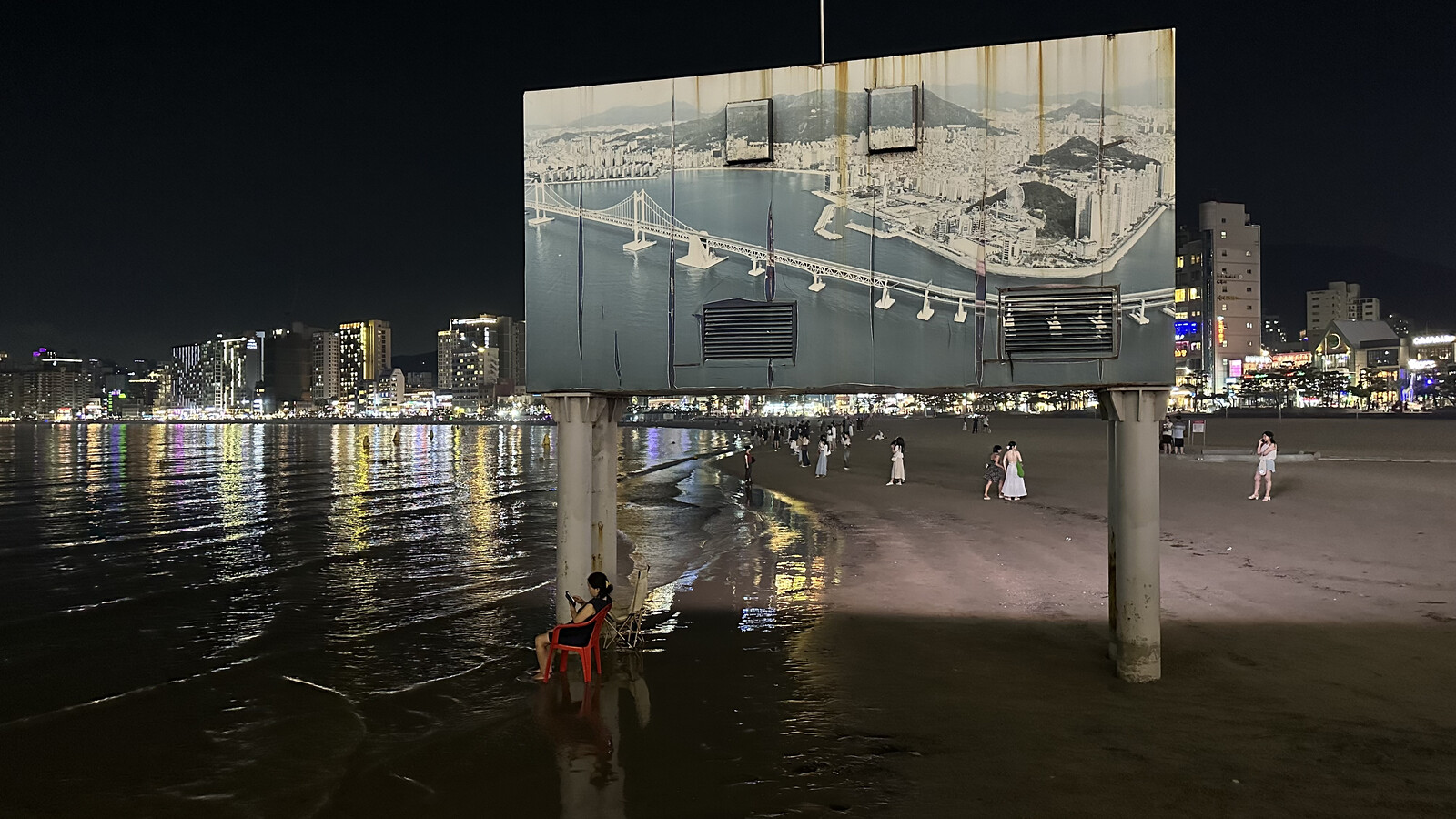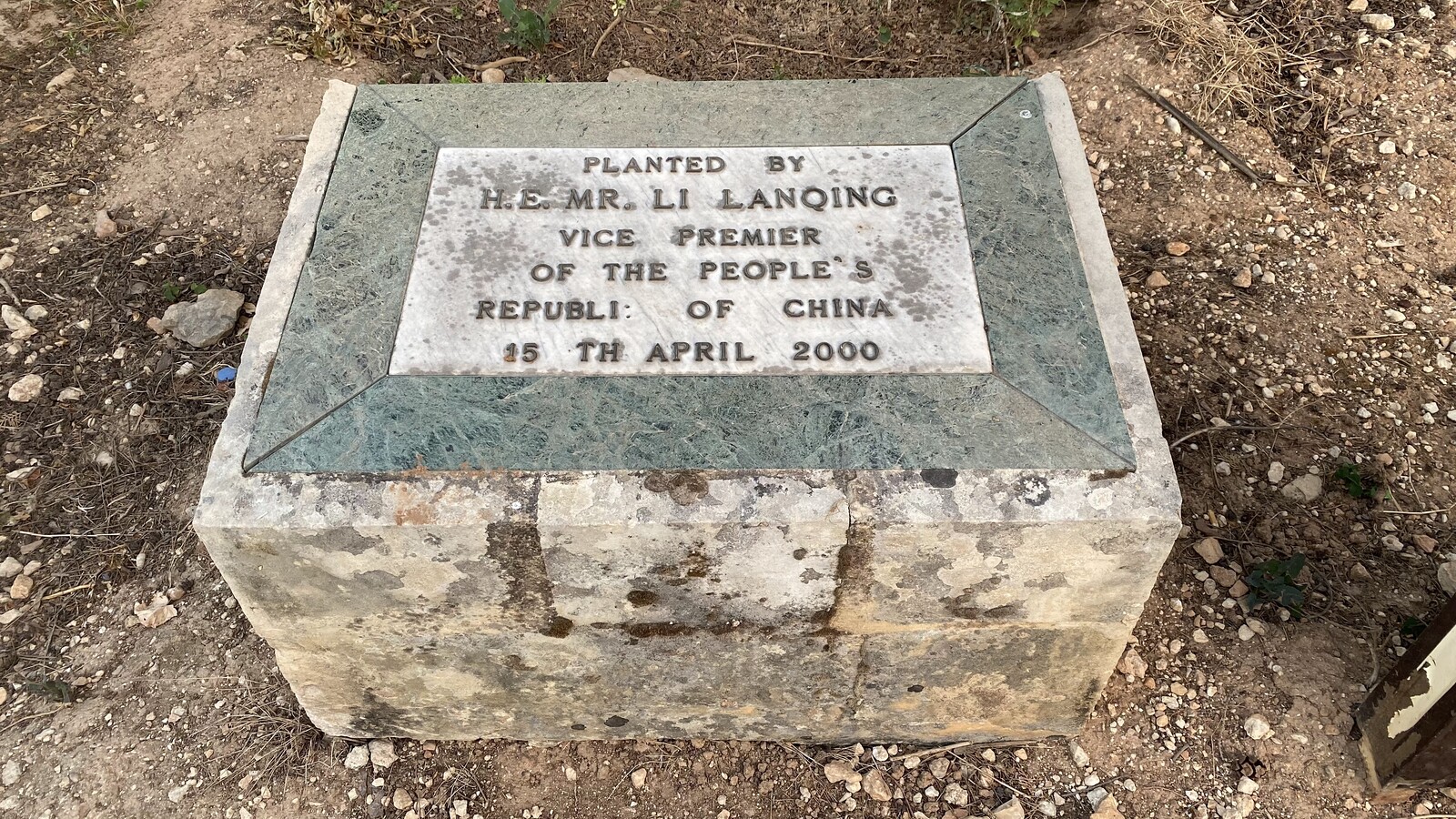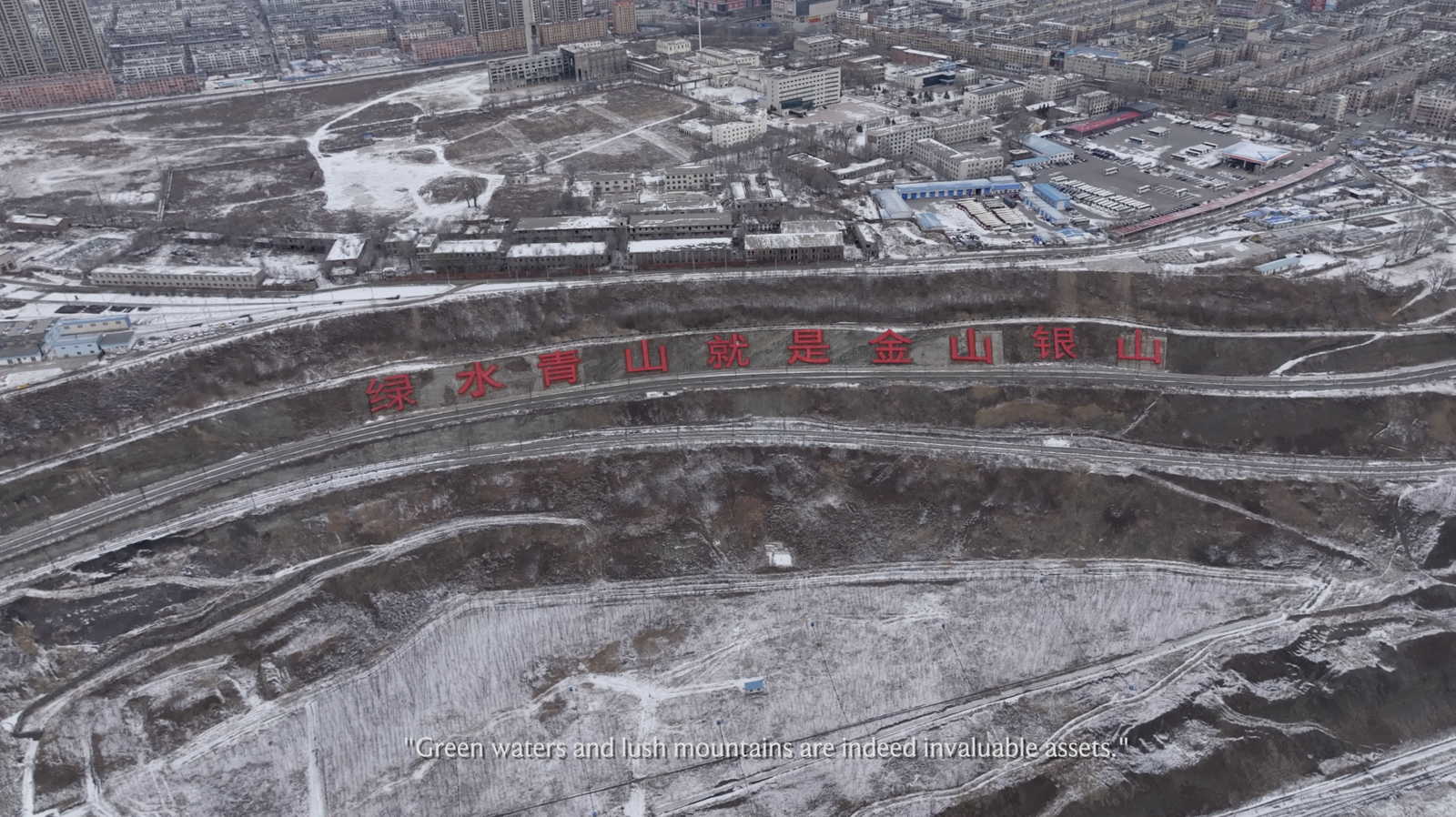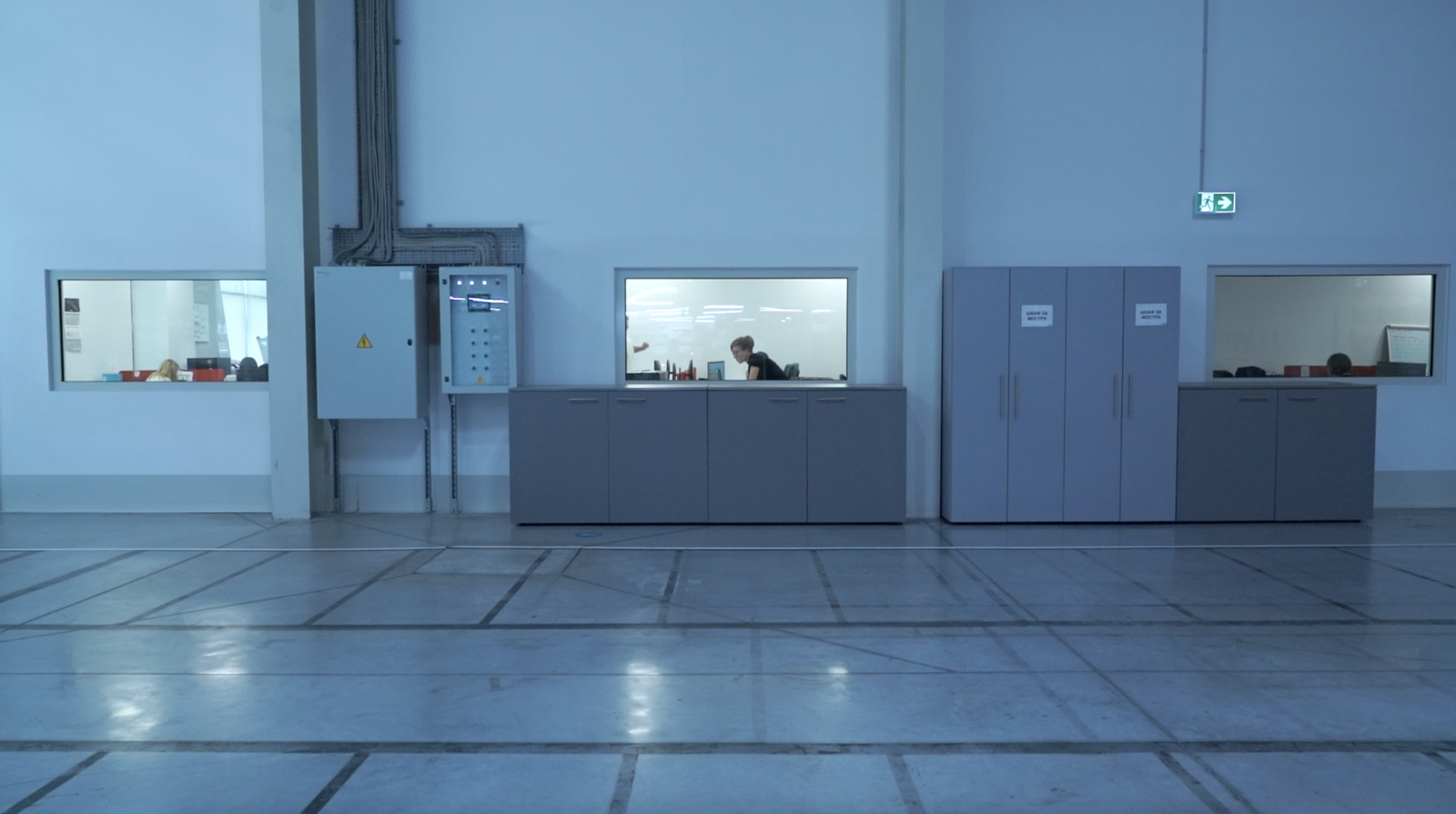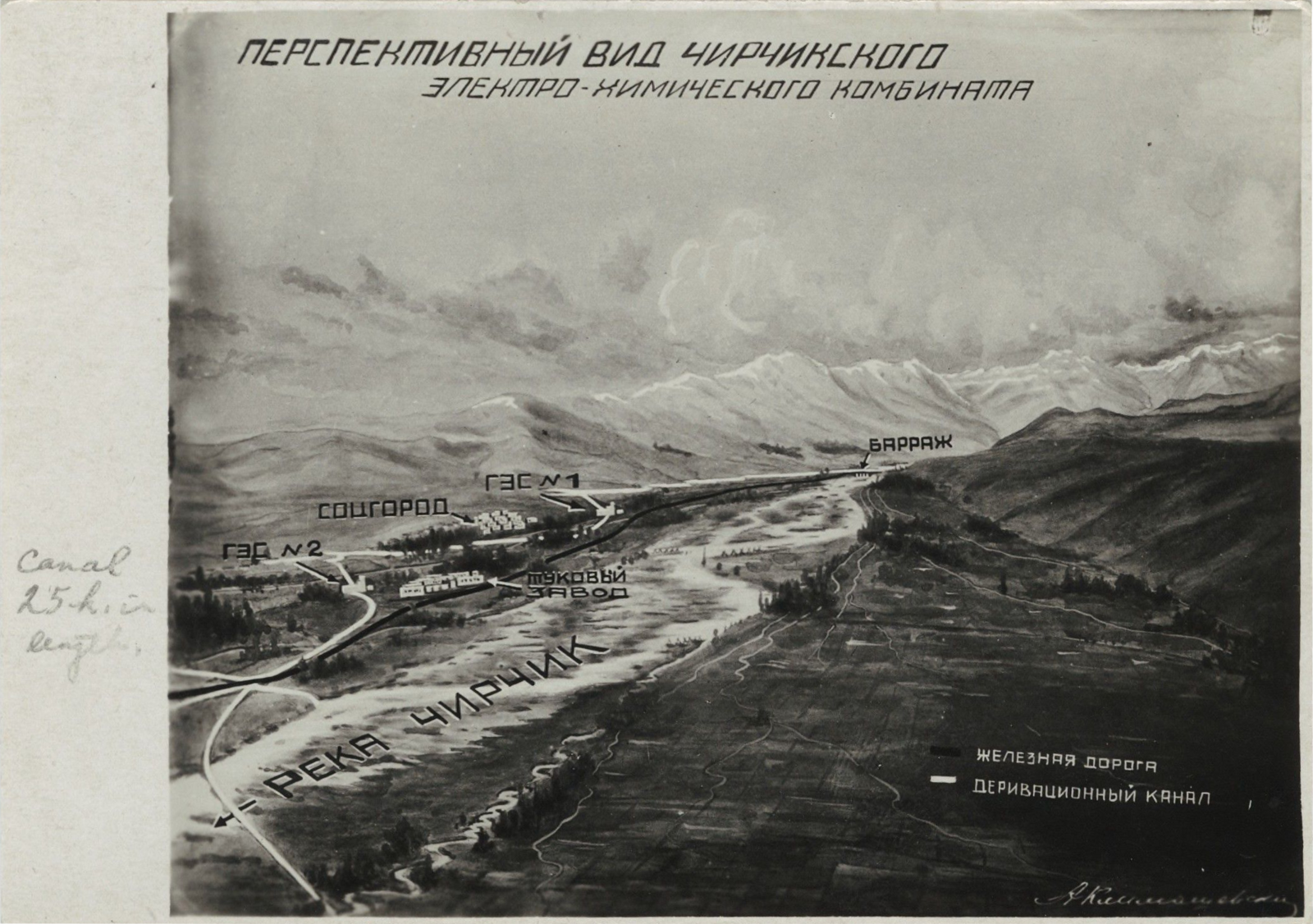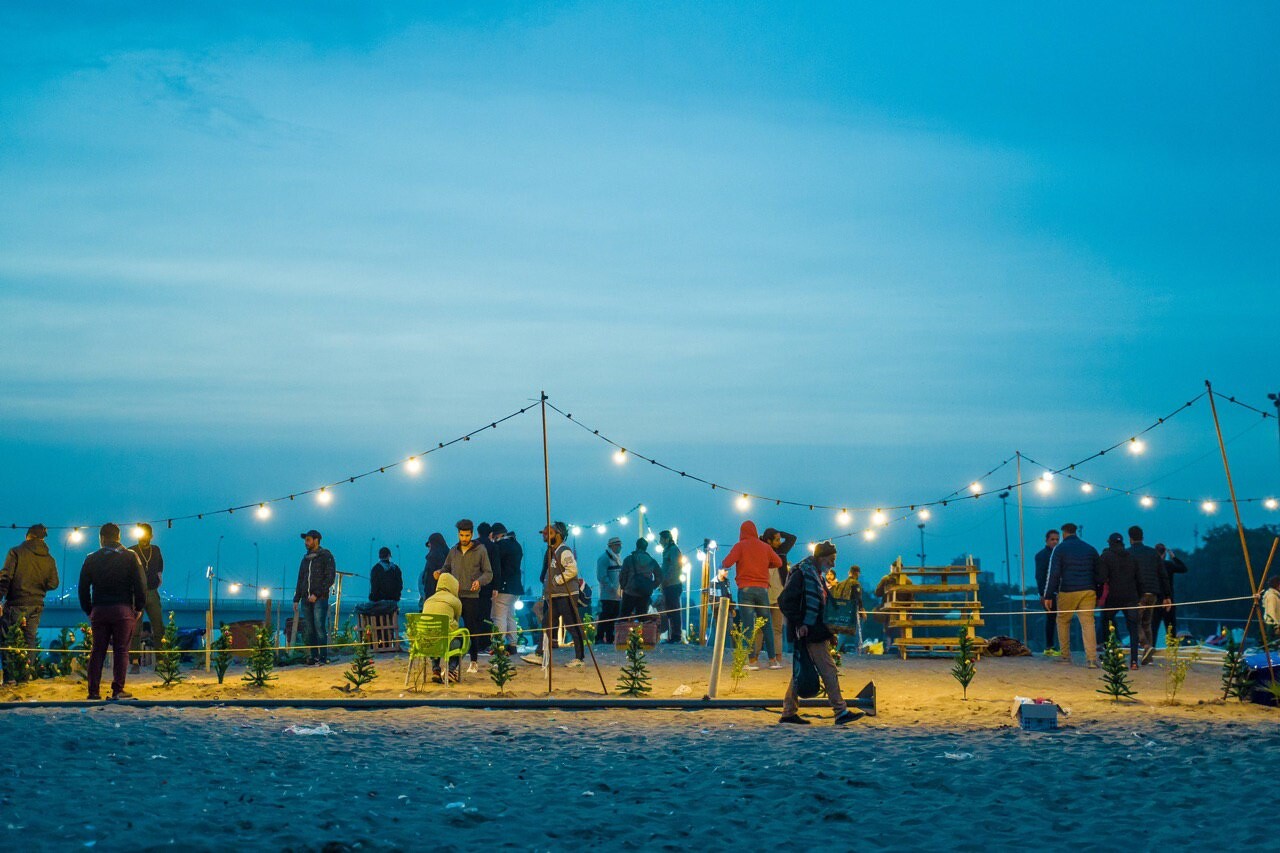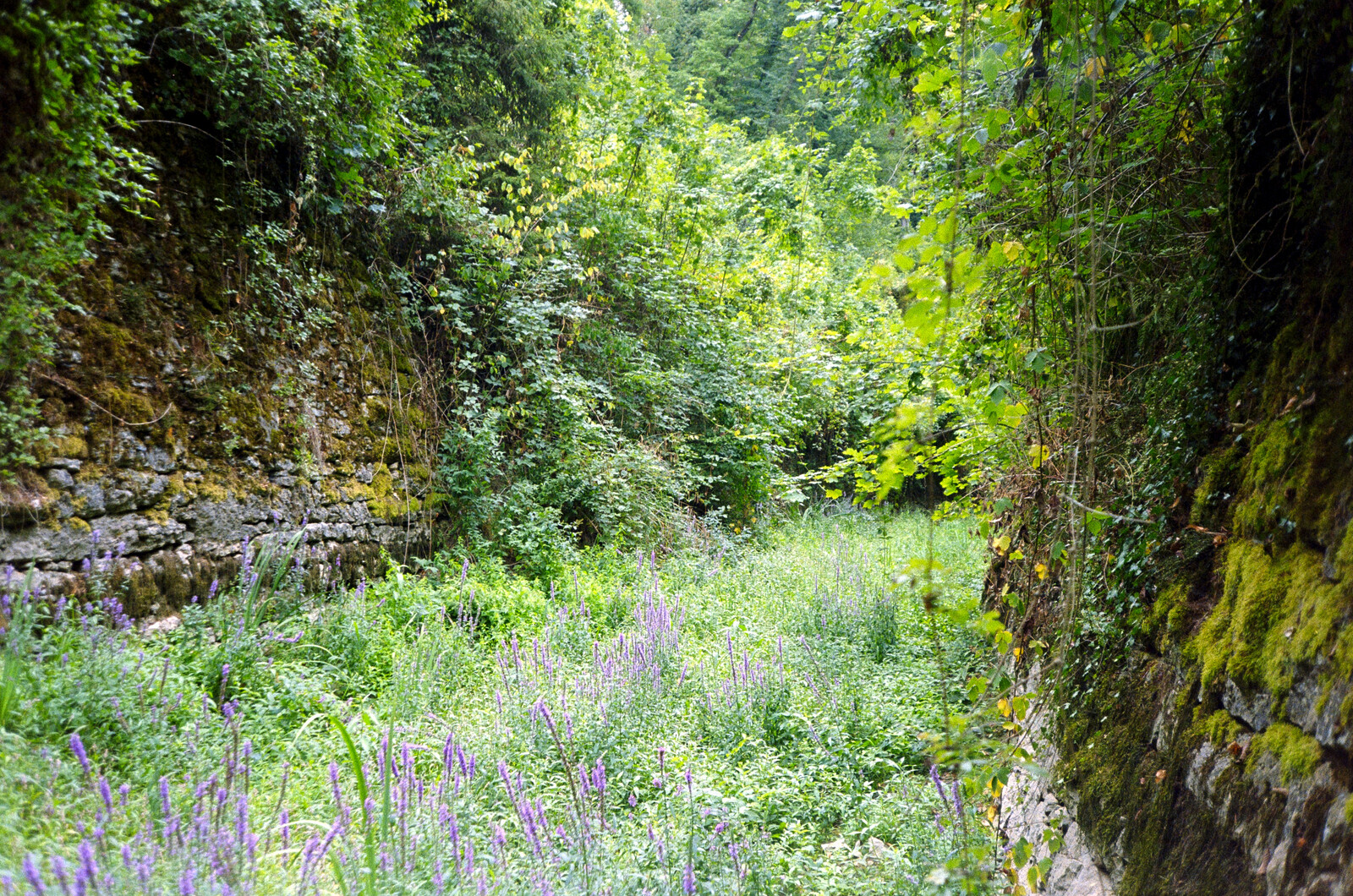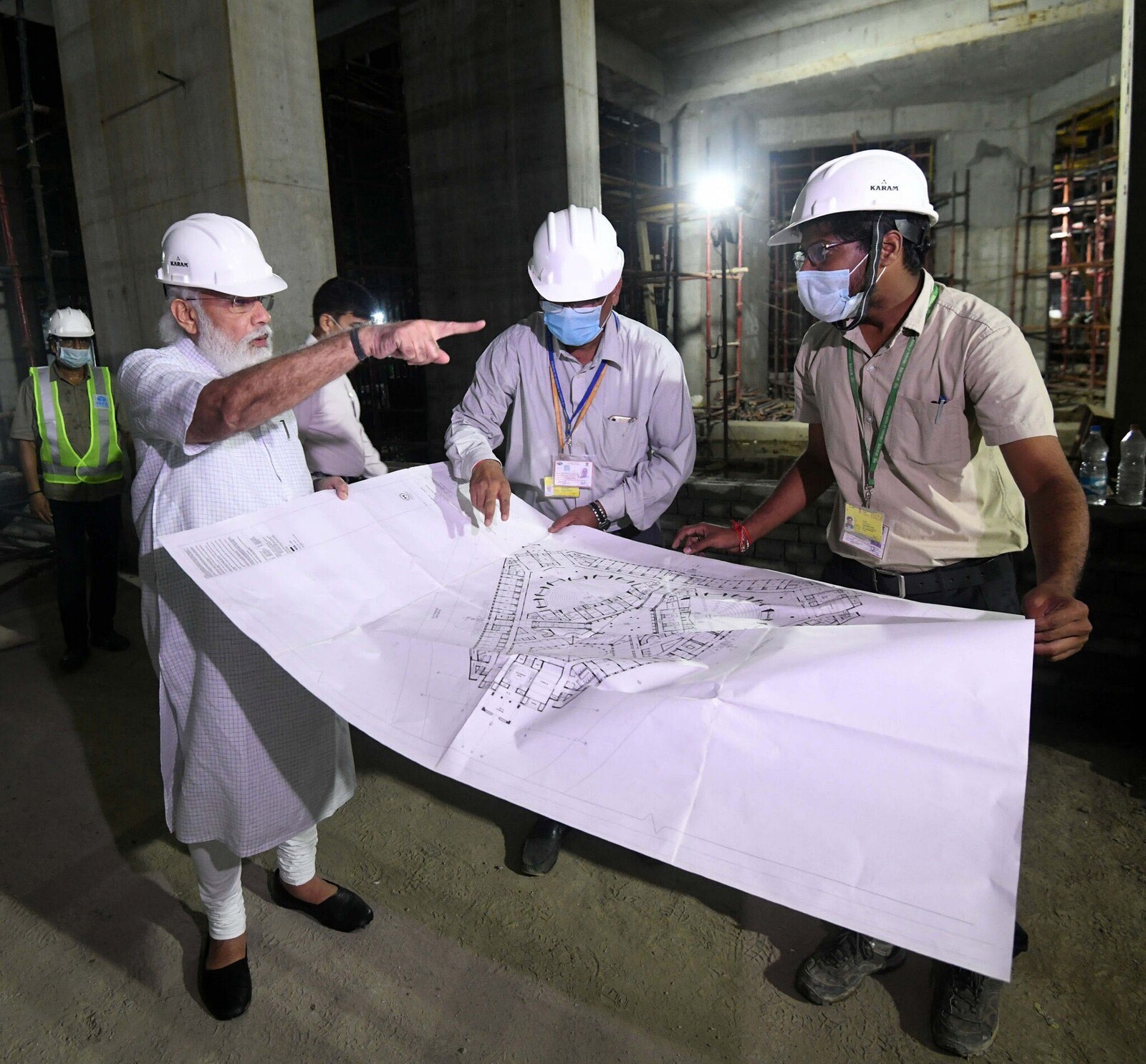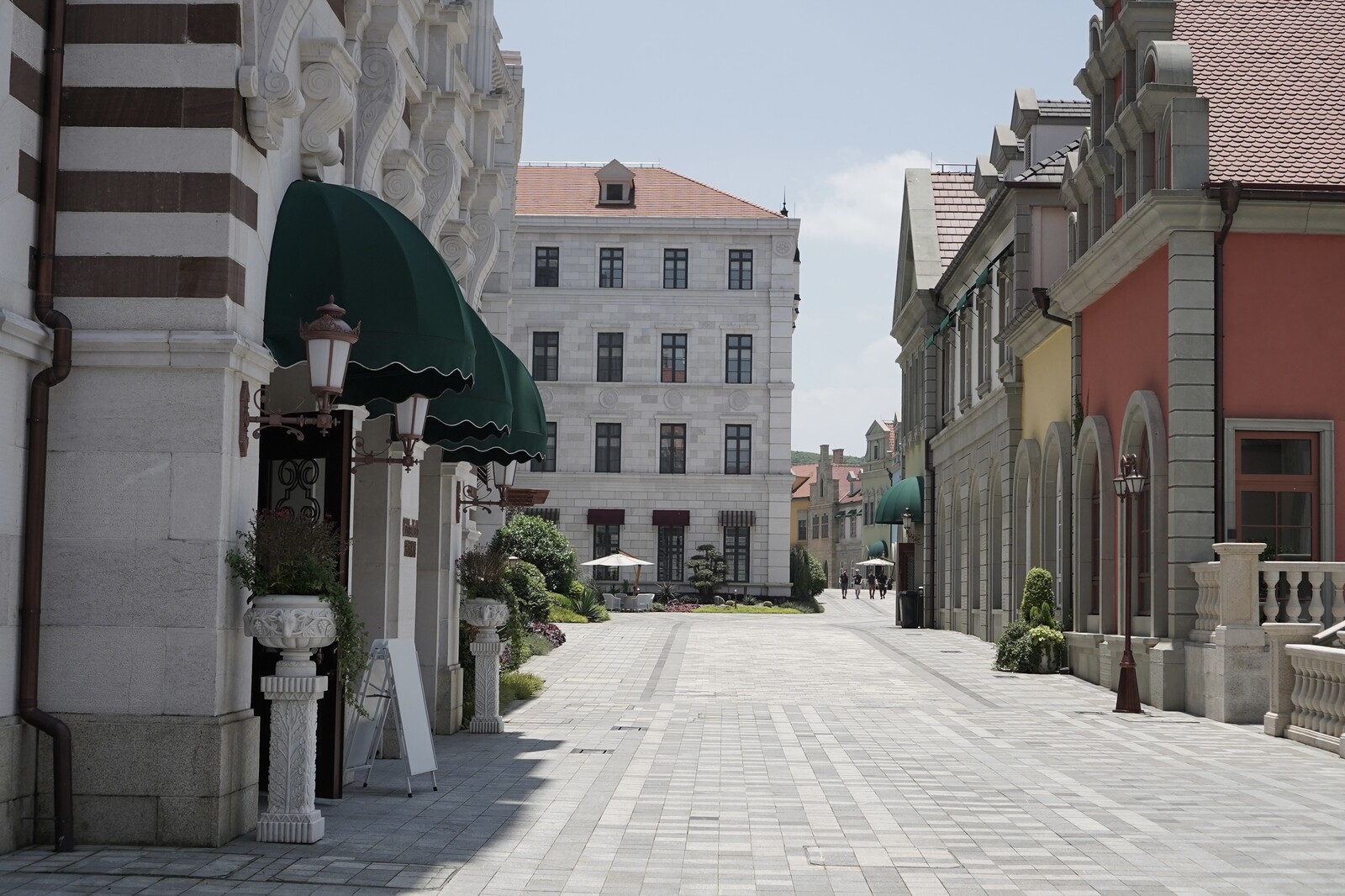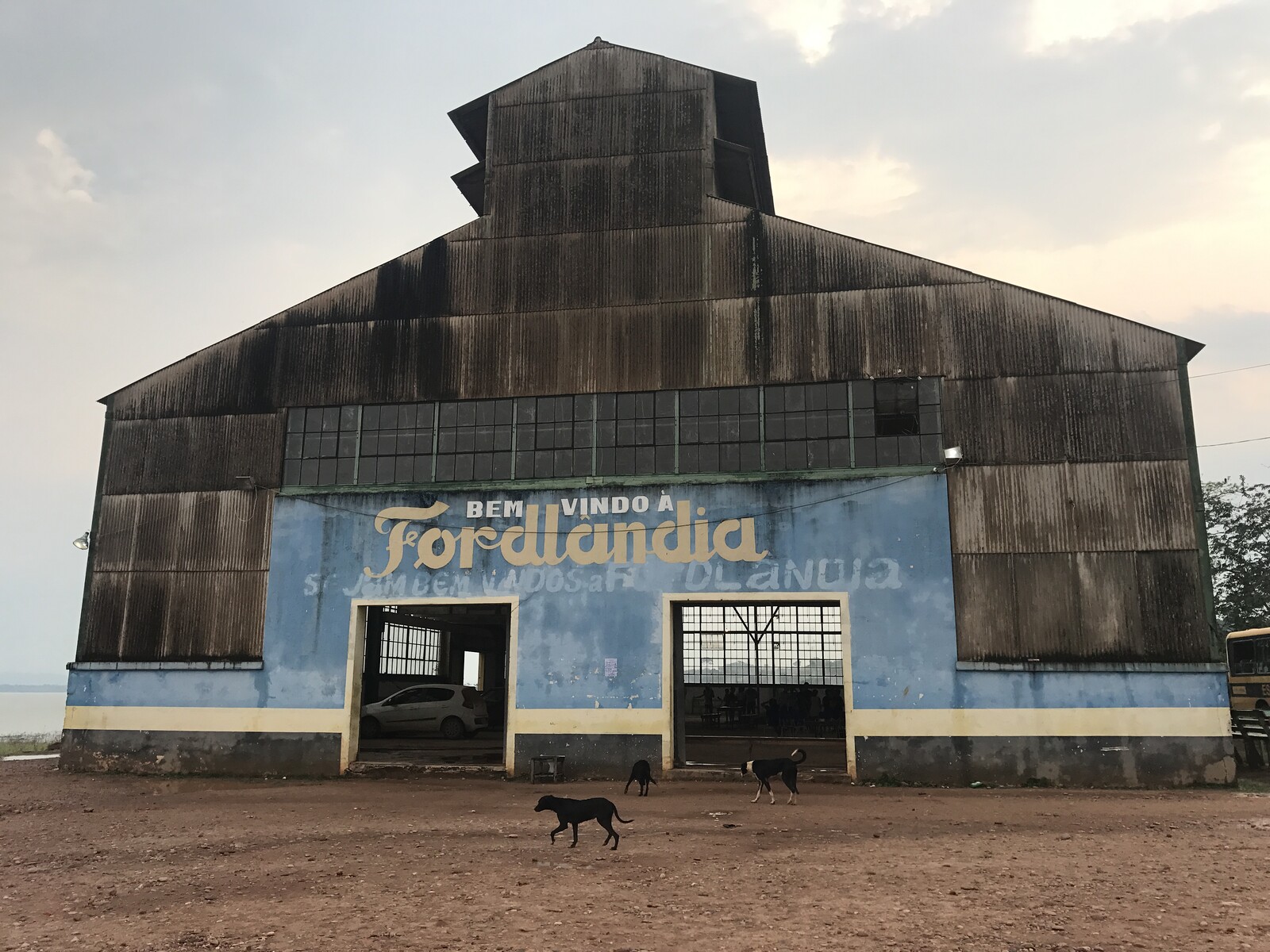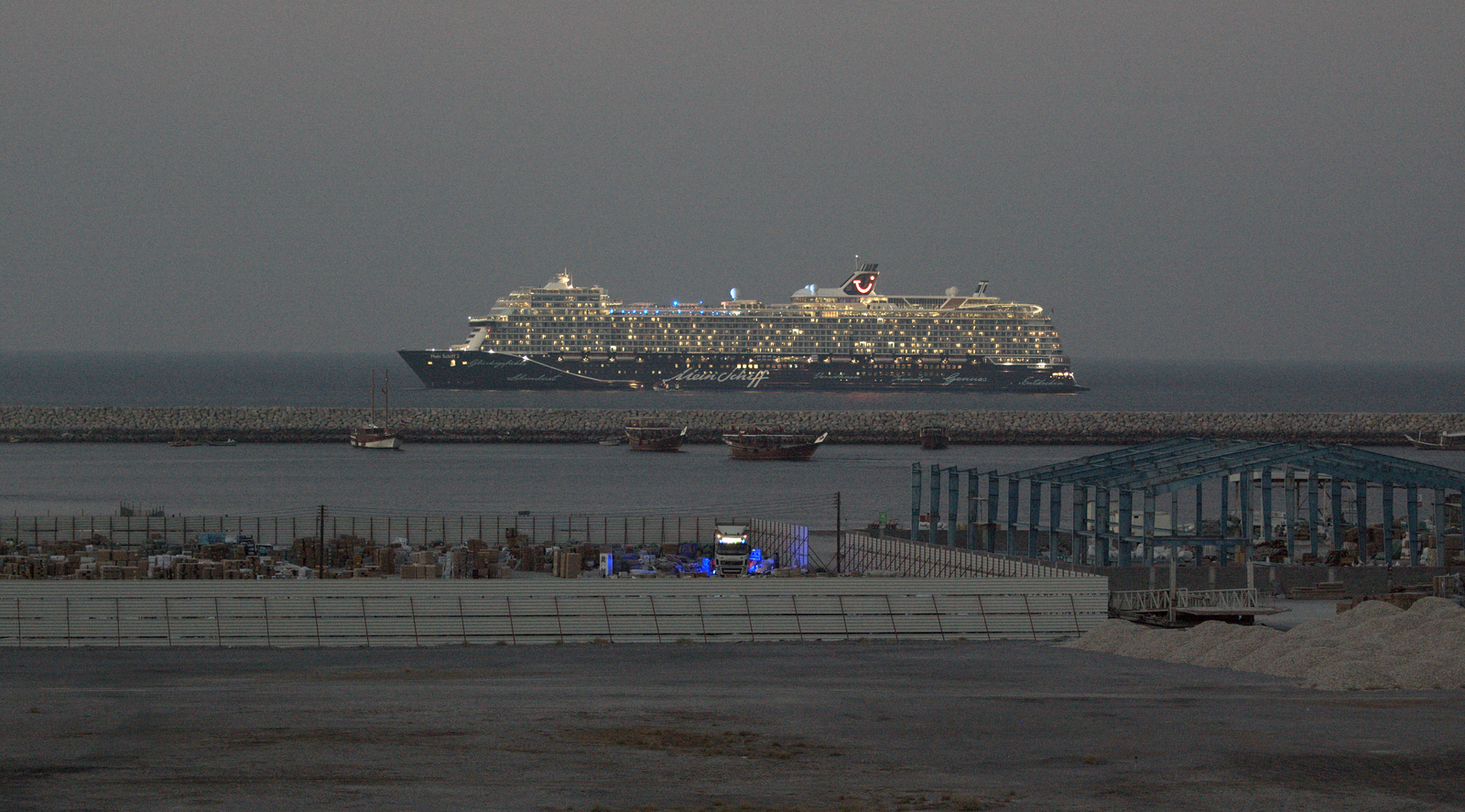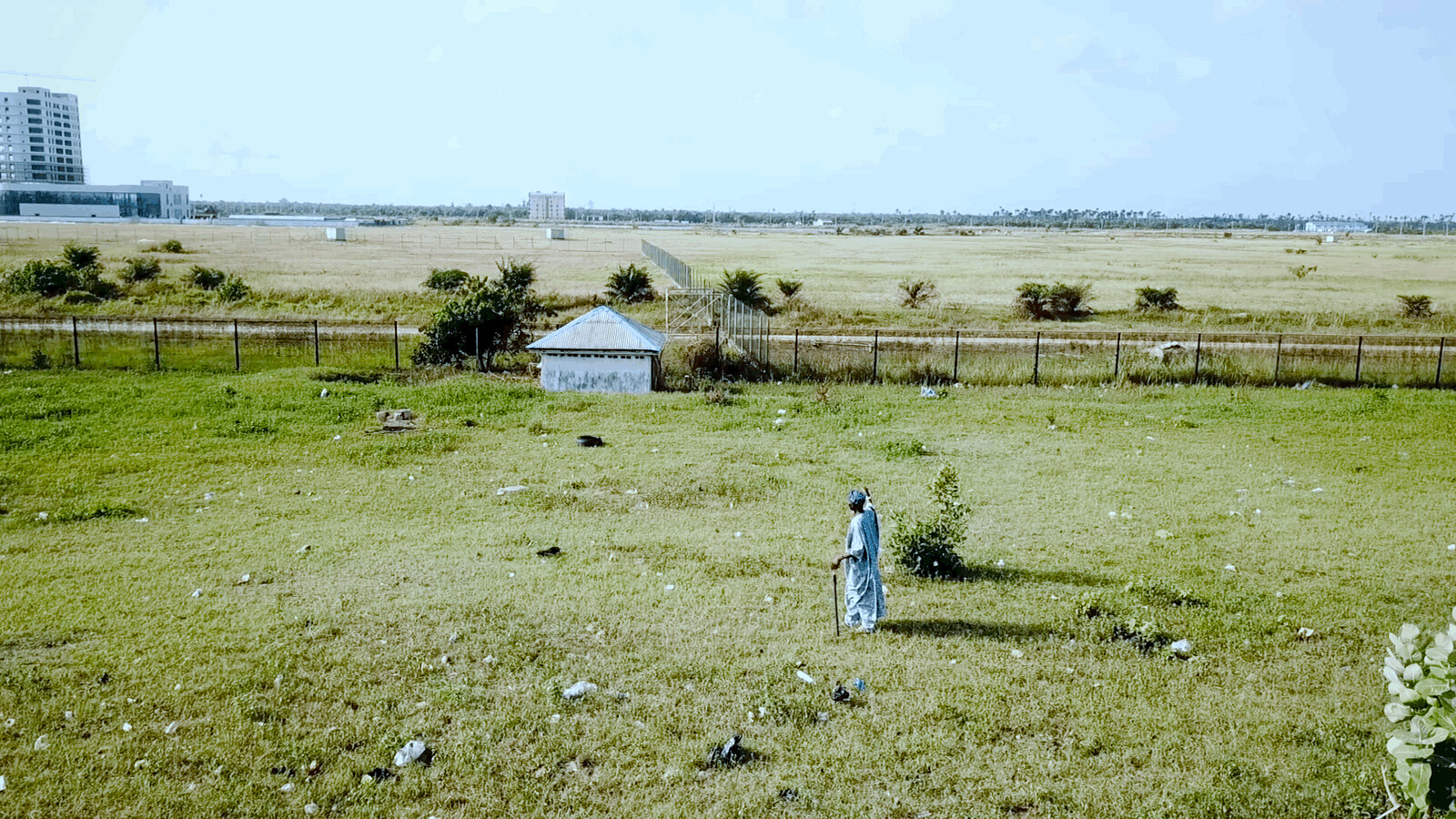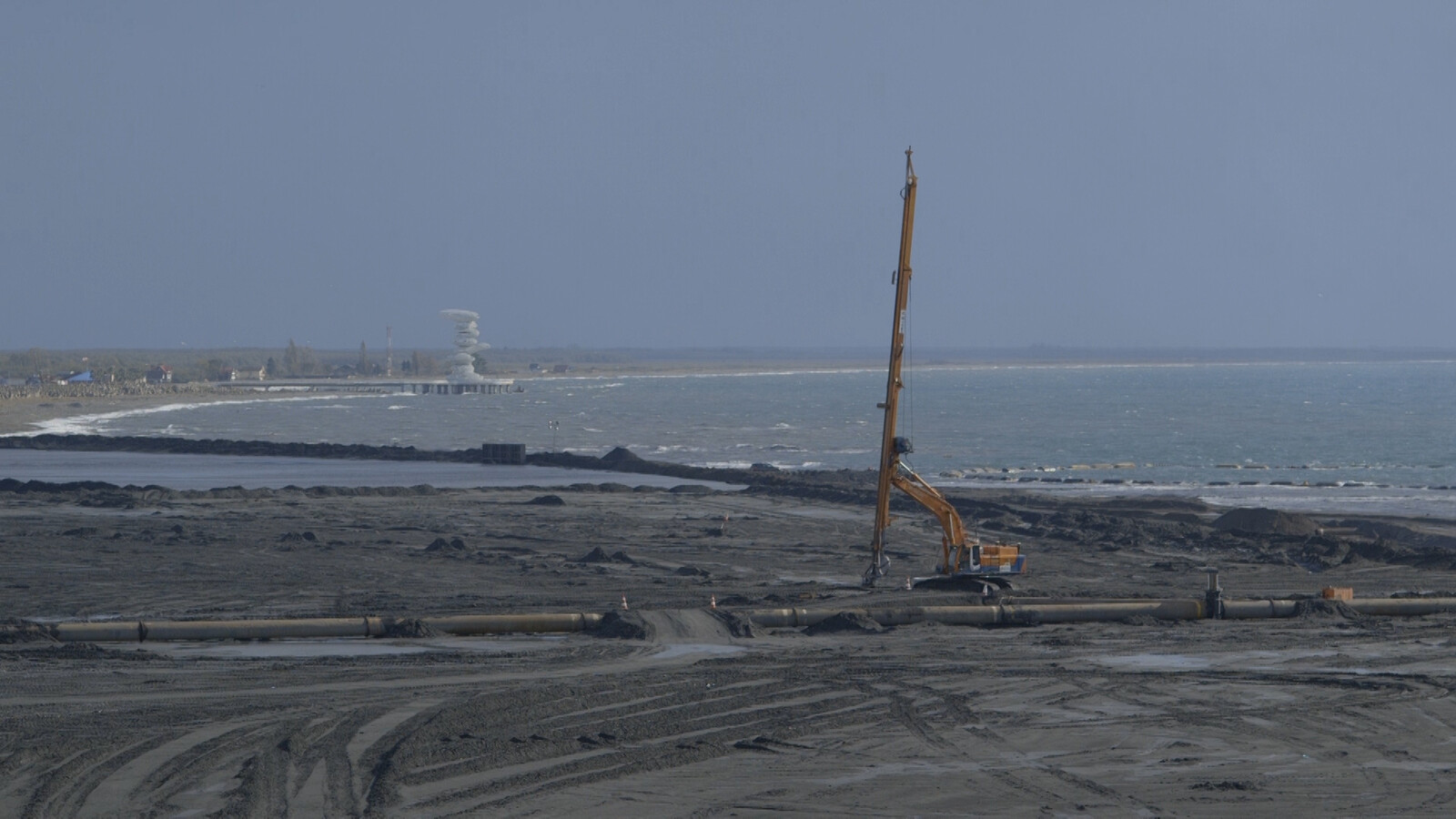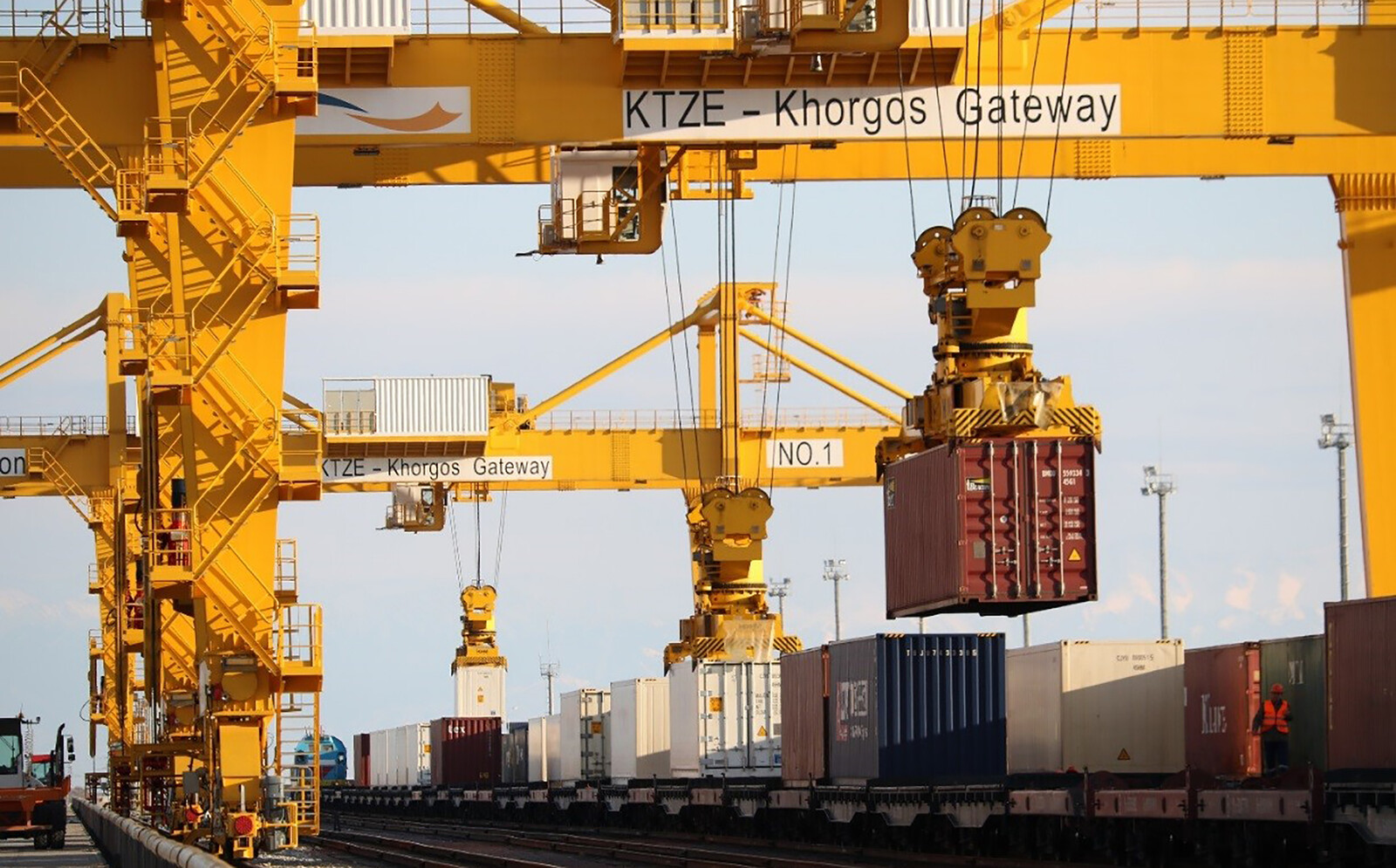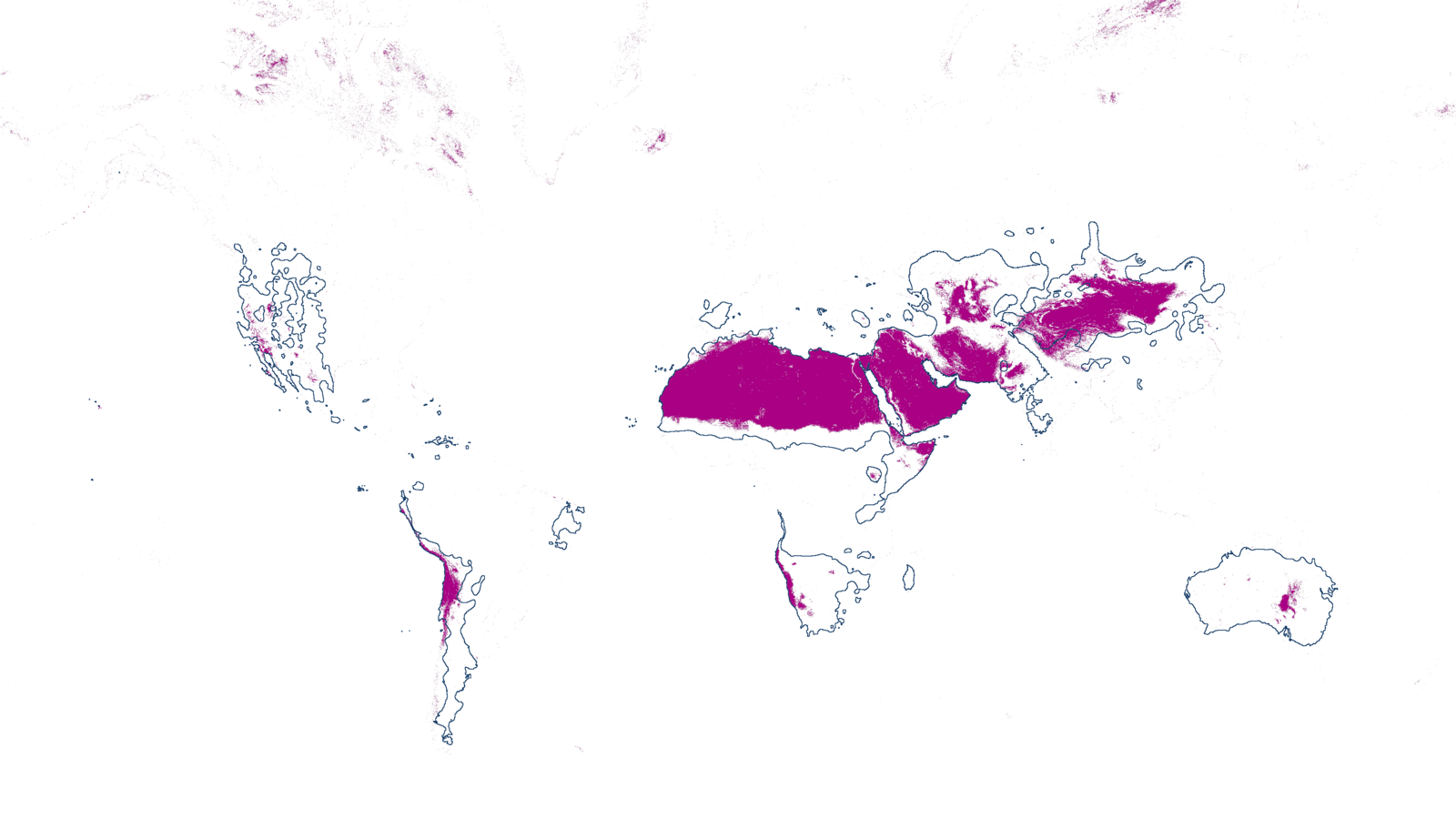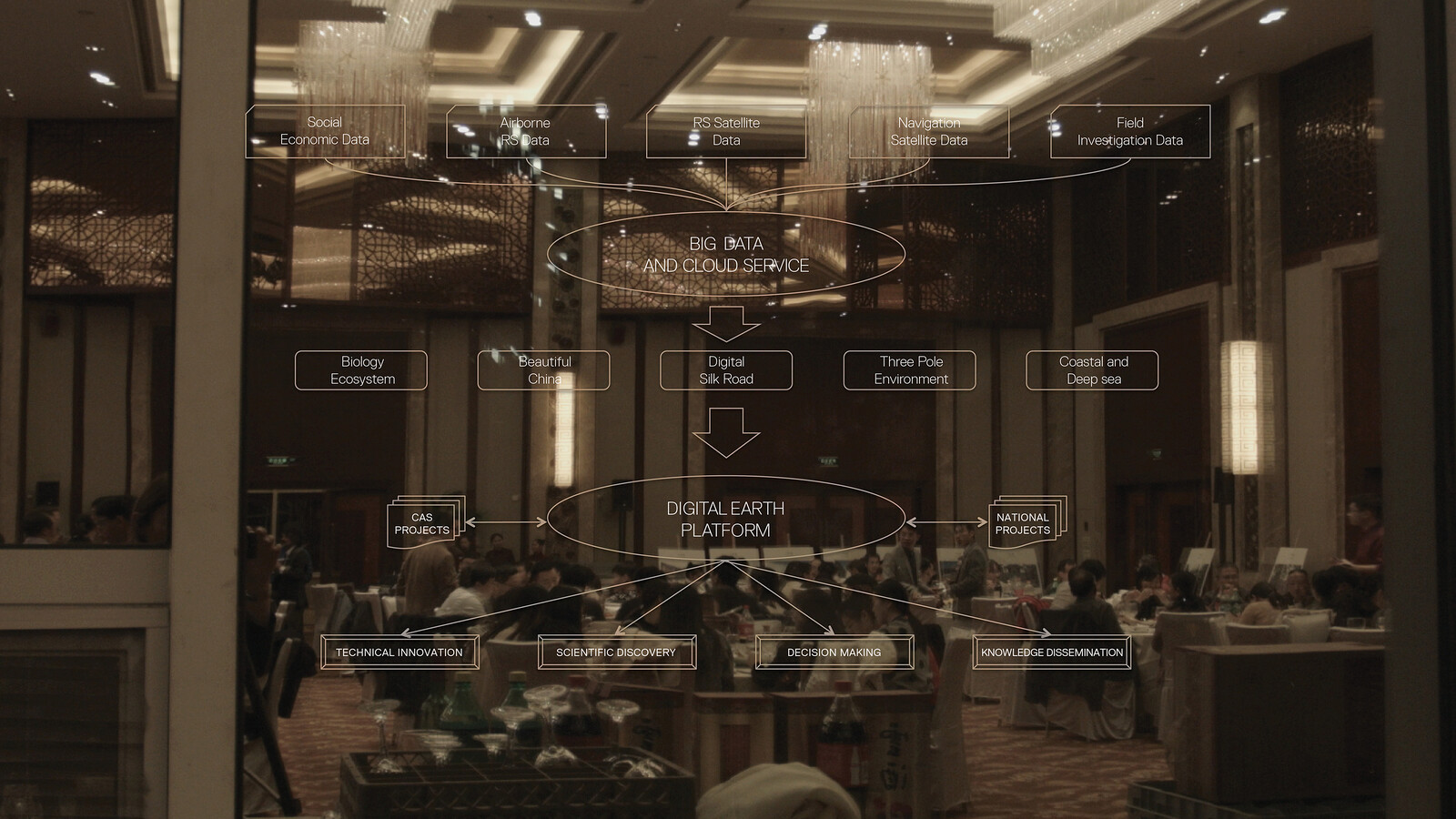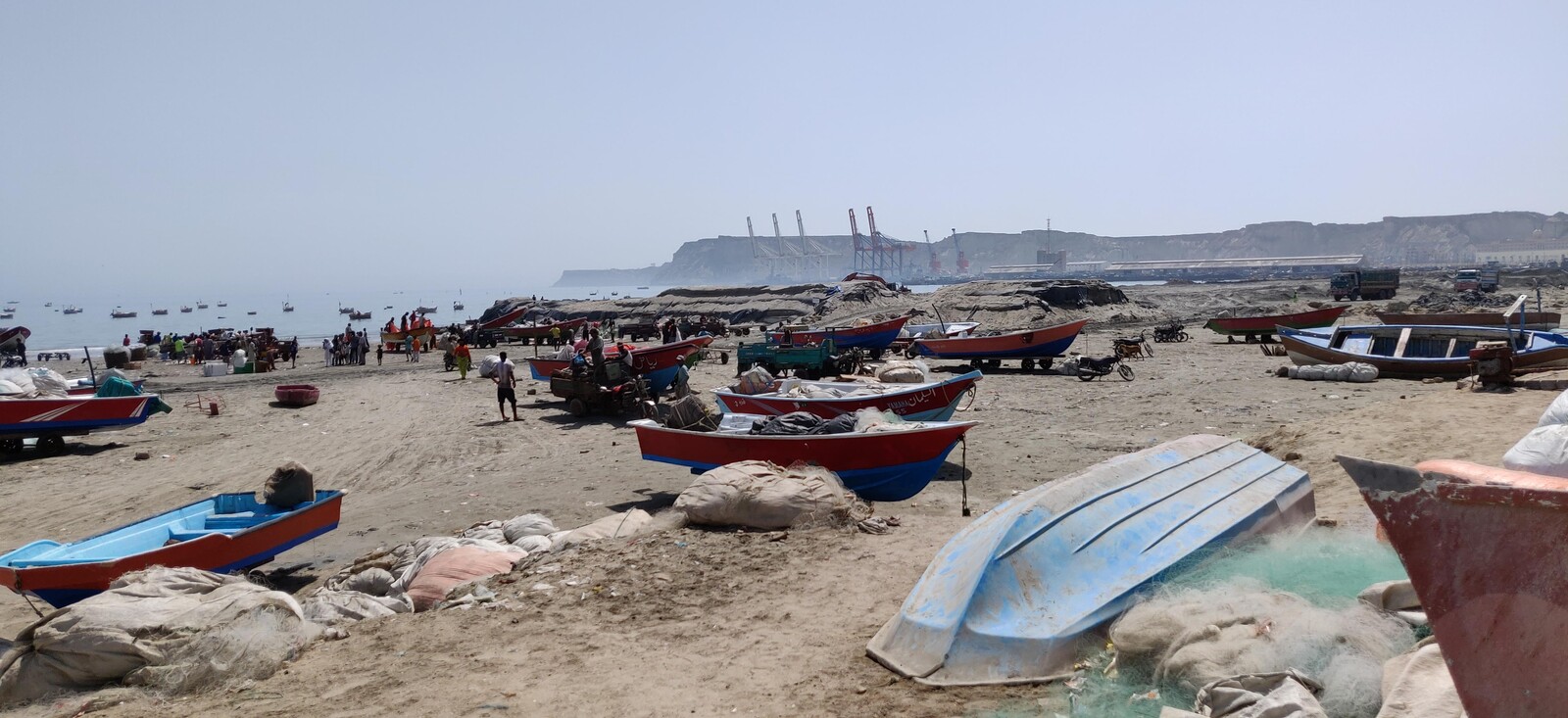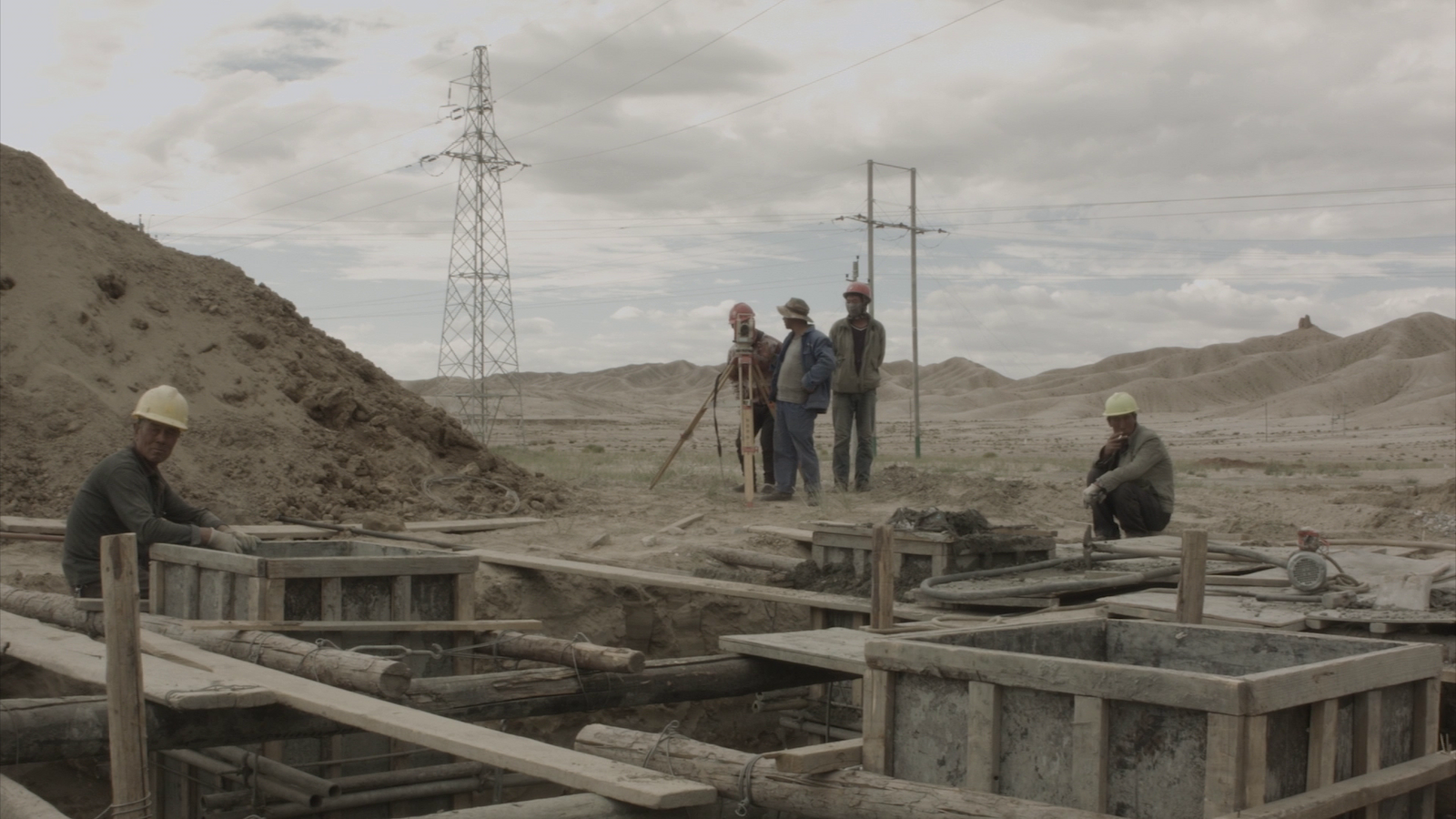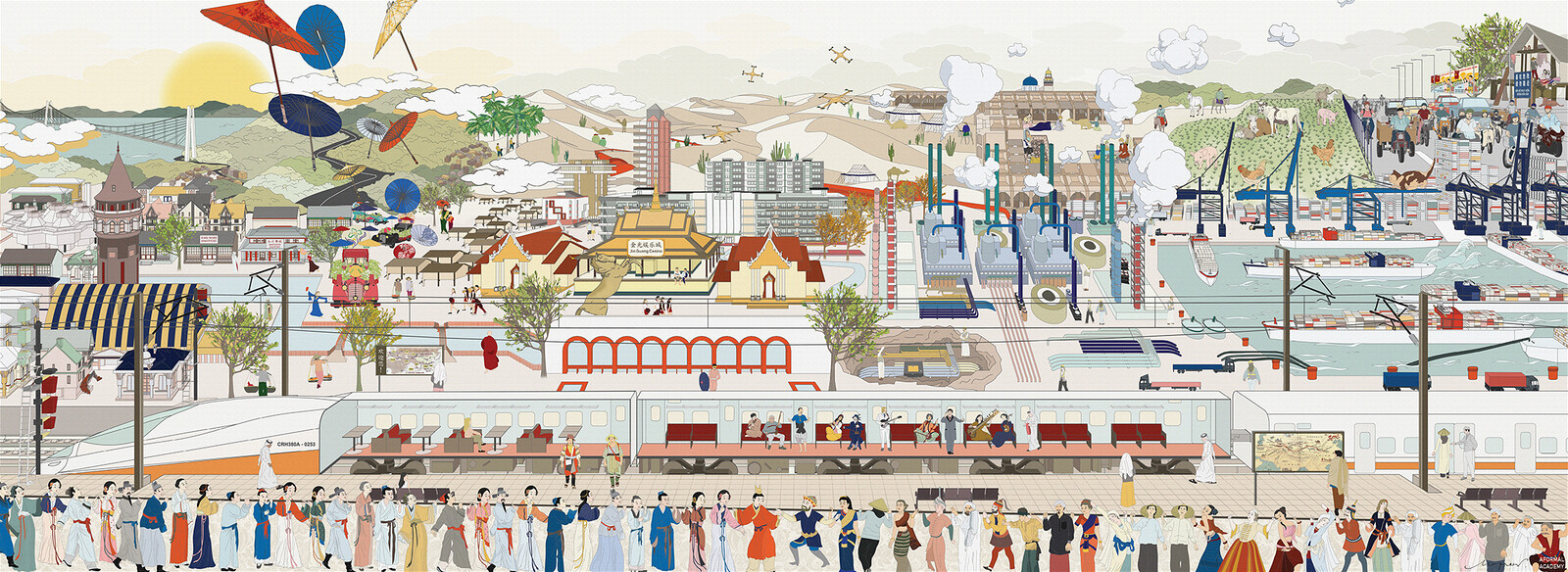New Silk Roads returns in collaboration with the Critical Media Lab at the Basel Academy of Art and Design FHNW and Noema Magazine, featuring contributions by Jamie Allen and Armina Pilav, Rouzbeh Akhbari, Jacob Dreyer, Anna Engelhardt and Mark Cinkevich, Andrea Gonzalez Garran, Azadeh Mashayekhi and Rend Beiruti, Furqat Palvan-Zade, Mila Samdub, Stephanie Sherman, Ina Valkanova, and Gary Zhexi Zhang.
Initiatives of globalized infrastructure and planetary logistics transform the realities of people worldwide: not just how we navigate, live, and see the world, but also how we fabricate and mobilize speculative imaginaries. It is these transformations and temporalities, both real and fictional, projective and material, that could be called “ghost planning”: architectures, technologies, and infrastructures that coexist, sometimes uneasily, in the mind and on the ground. What were once known as development programs, outlines, blueprints, or designs have metastasized into networks and collusions of ideologies, monuments, protocols, and fantasies of arguably greater consequence.
Ghost planning is a mode of ideation and ideological expansion that proceeds through incantatory media, reports, and communiqués, renewing and rearticulating existing infrastructures of mobility and extraction. Its projects, both contemporary and historical, aim to reorganize resources, cultures, and geographies through a scattered, murky logic of extrapolation, narration, assumption, and myth. Their comprehensions of time and their promises of possibility versus effect have in recent times become increasingly operational, despite their inherent uncertainties. Ghost planning moves with the times and tides across geopolitical boundaries with the (il)logic of capital flows, appropriating politics of authority and autonomy. It is nimble and irresolute, provisional and improvised, highly responsive and opportunistic, aiming to dominate, control, impact, and influence.
Narratives of ghost planning and infrastructural incantation are countered by decomposition, refusal, reappropriation, and reportage, thus grounding the often abstract and intangible discourse around imperialism and extrastatecraft projects in real locales and physical places. People and practitioners hack relations between infrastructural strata, propose proactive reclamations and imaginative rewildings, and rework waning built environments otherwise into places to live and thrive. Ghost planning precipitates practices and radical dreams that bring about alternative support systems, infrastructures, and modes of future-making.
Over the past few years, pandemics, conflicts, and crises have all fundamentally reshaped the methods, values, and techniques through which infrastructure comes into being, along with its sites of control and logics of manifestation. Infrastructures are always humble in scope compared to the promisings and imaginings that propagate them. In listening to new organizational patterns, planetary setups and projected processes, we learn more about where—and how—futures are being made. Knowledge of what haunts the present is the first step in understanding what could be possible, tomorrow.
New Silk Roads is a project by e-flux Architecture in collaboration with the Critical Media Lab at the Basel Academy of Art and Design FHNW and Noema Magazine (2024), and Aformal Academy with the support of Design Trust and Digital Earth (2020).

